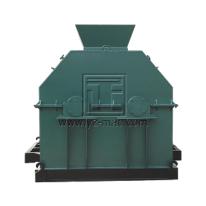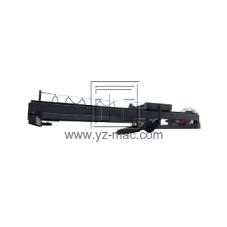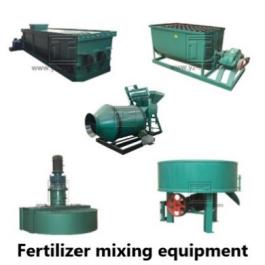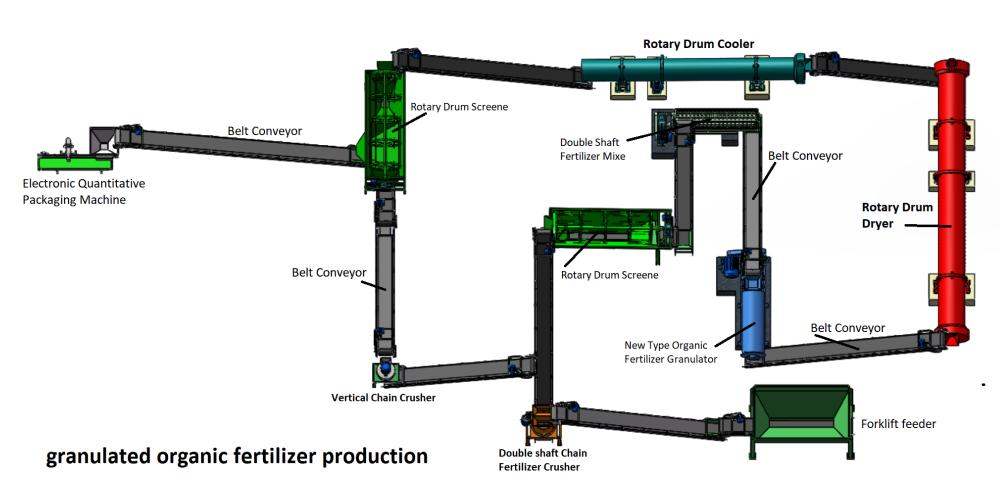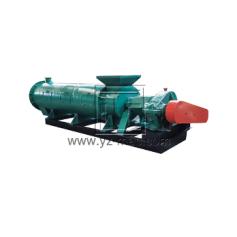Cow dung fertilizer machine
A cow dung fertilizer machine is an innovative and efficient solution for converting cow dung into high-quality organic fertilizer. Cow dung, a common agricultural waste, contains valuable nutrients that can be recycled and utilized to enhance soil fertility and plant growth.
Benefits of a Cow Dung Fertilizer Machine:
Nutrient-Rich Fertilizer Production: A cow dung fertilizer machine efficiently processes cow dung, transforming it into nutrient-rich organic fertilizer. The resulting fertilizer is a valuable source of organic matter, nitrogen, phosphorus, potassium, and other essential nutrients required for plant growth.
Pathogen and Weed Seed Destruction: The process of converting cow dung into fertilizer involves high-temperature composting or fermentation. This process effectively kills harmful pathogens, parasites, and weed seeds present in the cow dung, ensuring that the final product is safe and free from contaminants.
Improved Soil Fertility and Structure: Applying cow dung fertilizer to the soil enhances its fertility and structure. The organic matter and beneficial microorganisms in the fertilizer improve soil moisture retention, nutrient availability, and soil structure, leading to healthier plants with increased resistance to diseases and environmental stress.
Environmentally Friendly: Utilizing cow dung as a fertilizer reduces the reliance on synthetic fertilizers, which can have negative environmental impacts. Cow dung fertilizer is organic and promotes sustainable agriculture practices by minimizing chemical inputs and reducing environmental pollution.
Process of Converting Cow Dung into Fertilizer:
Collection and Sorting: Cow dung is collected from farms and undergoes sorting to remove any non-degradable materials or impurities.
Drying: The collected cow dung is dried to reduce moisture content, making it easier to handle and process.
Shredding and Mixing: The dried cow dung is shredded and mixed with other organic materials, such as crop residues or green waste, to create a balanced compost mixture. This step enhances the nutrient composition and overall quality of the fertilizer.
Composting or Fermentation: The cow dung mixture is placed in a composting or fermentation system. Microorganisms break down the organic materials, converting them into compost through a natural decomposition process. This stage may involve aerobic composting, anaerobic digestion, or vermicomposting, depending on the specific fertilizer production method.
Maturing and Curing: The composted cow dung undergoes a maturing and curing process, allowing the organic matter to stabilize and reach its full nutrient potential. This step ensures that the fertilizer is safe and ready for use.
Applications of Cow Dung Fertilizer:
Agriculture and Crop Production: Cow dung fertilizer is suitable for a wide range of crops, including fruits, vegetables, grains, and ornamental plants. It provides essential nutrients, improves soil structure, enhances water-holding capacity, and promotes healthy plant growth and yield.
Horticulture and Landscaping: Cow dung fertilizer is beneficial in horticulture and landscaping applications. It enriches soil in flowerbeds, lawns, nurseries, and gardens, supporting the growth of vibrant and healthy plants.
Organic Farming: Cow dung fertilizer is an essential component of organic farming systems. Its use aligns with organic certification standards, as it provides natural and sustainable nutrition to crops without the use of synthetic chemicals.
Soil Remediation and Restoration: Cow dung fertilizer can be utilized in soil remediation projects, such as land reclamation or degraded soil restoration. Its organic matter and nutrient content help revitalize the soil, improve its structure, and promote vegetation establishment.
A cow dung fertilizer machine offers an efficient and eco-friendly solution for converting cow dung into nutrient-rich organic fertilizer. By utilizing this technology, farmers and agricultural enthusiasts can transform a waste product into a valuable resource for enhancing soil fertility, improving crop productivity, and promoting sustainable agriculture practices. The process of converting cow dung into fertilizer involves collection, drying, shredding, composting, and maturing. Cow dung fertilizer finds applications in various sectors, including agriculture, horticulture, organic farming, and soil remediation. Embracing cow dung fertilizer contributes to sustainable agriculture, soil health, and environmental stewardship.



